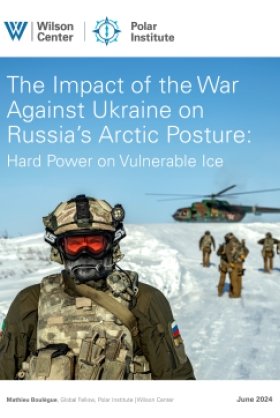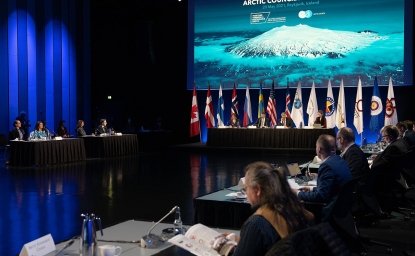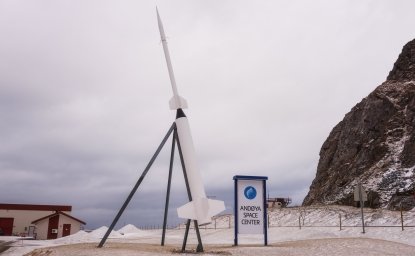The Impact of the War Against Ukraine on Russia's Arctic Posture: Hard Power on Vulnerable Ice


Over the past two decades, Russia has strategically reasserted control over its Arctic territories, driven by economic interests and geopolitical concerns, particularly amidst competition with Western nations and NATO. This effort, extending from the European High North to the Pacific Arctic, involves militarization to safeguard perceived national security interests. Despite ongoing global shifts, such as the invasion of Ukraine and Finland and Sweden's NATO accession, Russia's strategic objectives in the Arctic persist, albeit with a growing sense of vulnerability fueled by climate change and evolving security dynamics. As circumpolar cooperation falters, understanding Russia's military adaptations in the Arctic, especially in light of the Ukrainian conflict, is essential for shaping effective circumpolar policies. In "The Impact of the War Against Ukraine on Russia's Arctic Posture: Hard Power on Vulnerable Ice," author Mathieu Boulègue, Global Fellow, illuminates Russia's steadfast pursuit of Arctic dominance amidst complex geopolitical and environmental challenges.
This publication was funded by the Russia Strategic Initiative, US European Command.
The views expressed in this publication do not necessarily represent the views of the Department of Defense or the United States government.
Author

Consulting Fellow, Chatham House; Non-Resident Senior Fellow, Center for European Policy Analysis

Polar Institute
Since its inception in 2017, the Polar Institute has become a premier forum for discussion and policy analysis of Arctic and Antarctic issues, and is known in Washington, DC and elsewhere as the Arctic Public Square. The Institute holistically studies the central policy issues facing these regions—with an emphasis on Arctic governance, climate change, economic development, scientific research, security, and Indigenous communities—and communicates trusted analysis to policymakers and other stakeholders. Read more

Explore More
Browse Insights & Analysis
Fulbright Arctic Initiative IV Scholar at the Polar Institute

Trump 2.0’s Arctic Opportunity: Thawing Frozen Dialogue

